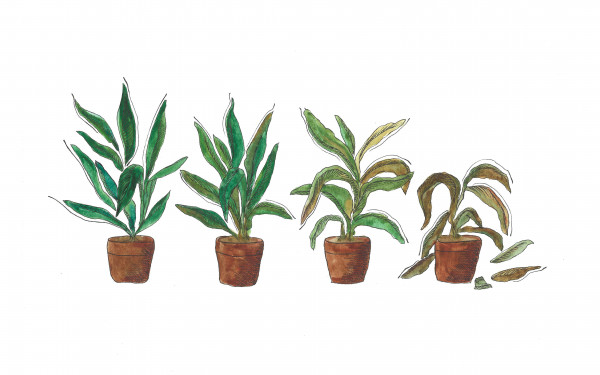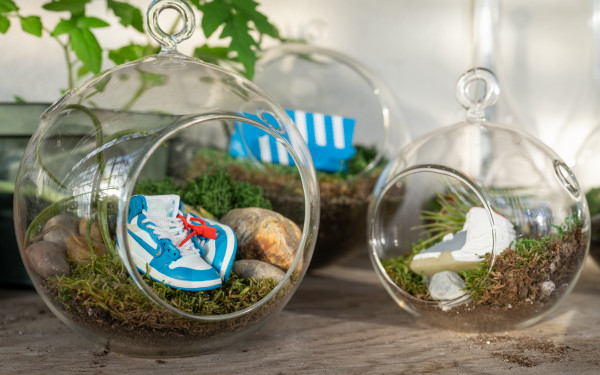Seed Library Initiative at Concordia Greenhouse
Planting the Seed
Concordia students are building a brand new library, but there are no books in sight—a seed library is being developed at the Concordia Greenhouse.
The concept is simple; students will borrow seeds to start their own gardens and then return the seeds from matured plants to the library. This way, an assortment is always available to future gardeners.
Six Concordia students within the interfaculty class International Community Engagement run the project. Michelle Della Corte, the project leader, says that she was inspired by the Seed Library at the Atwater Library and Computer Centre downtown, which stores seeds in the library’s card reference bureaus.
2_900_600_90.jpg)
“I thought that something similar could work at the greenhouse with the active student population, and the goals of the greenhouse itself,” she explained.
This initiative will enable students to grow their own food in the comfort of their homes. Though this may sound like an impossible feat in a typical Montreal apartment, it is very possible and doable.
“Take advantage of potted plants around the apartment, or on a balcony or windowsill during the summer,” said Mary Harasym, one of the project organizers.
Jenna Green, fellow team member, pointed out how growing fresh herbs like basil, chives, or rosemary would be a good start, as they are easy to grow in a small space.
It seems only recently that seed libraries began to pop up around the U.S. and Canada. Typically these projects are set up in traditional libraries, and rely on the hope that people will bring back the seeds for other gardeners to use. With their popularity still growing an estimated 340 seed libraries in North America, they encourage the survival of the countless fruit and vegetable varieties that run the risk of extinction every year.
“Through the project, I hope people will experience the joy of gardening, from planting a seed to watching the little seedling grow into a strong plant,” Della Corte said. “It’s such a beautiful and incredibly immersive process.”
“Through the project, I hope people will experience the joy of gardening, from planting a seed to watching the little seedling grow into a strong plan.” —Michelle Della Corte, one of the six students running the project.
According to Harasym, the growing popularity of seed libraries can be attributed to the increasing knowledge of how internationally corporatized seed distribution has become. She explained that approximately 85 per cent of seed distribution is monopolized by biotech companies, such as Monsanto and DuPont.
“These are alarming numbers that make us realize we cannot be dependent on a monoculture of growth,” she explained.
Harasym also outlined how this initiative is not only positive for the environment, but a great opportunity for students to practice sustainability.
“In the most fundamental ways, it allows people to reconnect with our food, what we nourish our bodies with,” she said. “It’s a refreshing concept with almost having the antithesis of the instant gratification we have in today’s society. It’s a perfect opportunity to get involved with your local community.”
The project is in early development, with the team working on gathering seed donations in order to make the library diverse and successful. Della Corte hopes that the project will be up and running by April. The library largely consists of fruit and vegetable seeds at the moment, she says.
“Right now we have a variety of squash seeds from my personal library, alongside an employee of the Greenhouse who works with City Farm School,” Della Corte said. “It’s really dependant on student donations, the different varieties of seeds that we will offer.”

1_900_600_90.jpg)


_600_375_90_s_c1.jpg)


